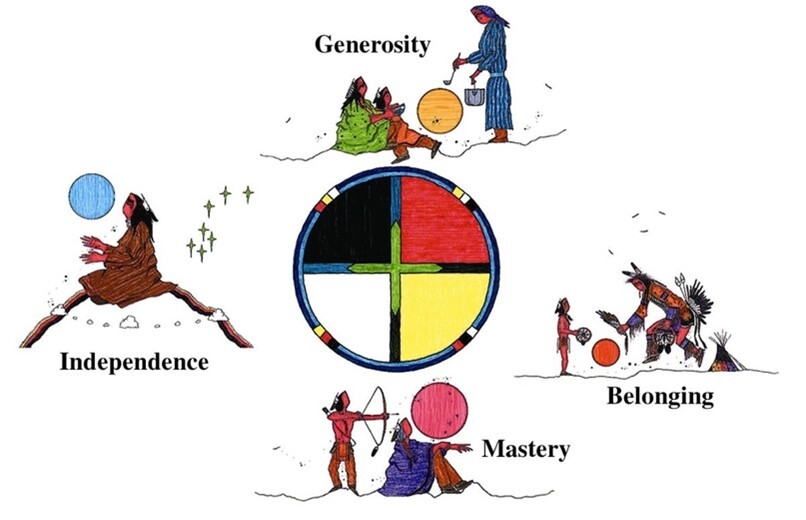Belonging is a Universal Need
By Scott Corbett, Acting Assistant Principal Students
Our time at Secondary School and Senior School is a pivotal stage in our journey to developing the skills and capabilities that guide us in our lives as adults. The privilege we have as educators to walk alongside families in growing these capabilities among the young people we care for is a great honour. In my first Bulletin article for the year, I wanted to take the opportunity to introduce my model of well-being that has guided me in my approach as both an educator and a human being.
The model is referred to as the Circle of Courage, which emerged from the work of some brilliant educators in South Dakota. The model is a synthesis of both Western and Indigenous models of child development, attempting to highlight the universal needs for a person to thrive. The model identifies four core needs: belonging, generosity, independence, and mastery. When a person has all four quadrants met, they can have a sense of positive well-being and engage fully in their lives. Conversely, when someone has an unmet need in one or more of the quadrants, they will struggle to feel a sense of wellness.

Having trained in South Dakota with Dr Larry Brendtro, Dr Steve Van Bockern, and Lakota Elder Martin Brokenleg who led the development of the Circle of Courage, I have had the privilege of seeing the model embedded in communities to make a significant positive impact.
While you could debate endlessly about which universal need comes first, for me, it is belonging. Core to our capacity to thrive is our sense that we are part of a community and that we feel connected to the spaces and people we see daily. I hope that at Radford, all students, staff, and families, have the opportunity to forge a sense of belonging to this community. No matter where you draw this sense of belonging from, I hope that everyone that is a part of our community can continually develop their experience of connection to Radford. It is through this sense of belonging, as a beginning point, that I believe our students can thrive in the opportunities we provide for them.
For me, the Circle of Courage represents a framework through which to understand human behaviour. The belief in this school of thought is that our behaviour is simply our best attempt to meet our needs. Our role as families and educators is to support the young people we care for in developing the skills required to meet their needs in a positive, safe, and empathetic way. If we can provide those around us the courtesy of patience, apply empathy, and consider the need behind the behaviour, we can empower all in our community to thrive.
I look forward to working alongside all of our families as they foster their sense of belonging and embrace their role as essential members in the Radford community.
Reference: Brendtro, L; Mitchell, M. (2015), Deep Brain Learning. Circle of Courage Publications, Sioux Falls, South Dakota.
